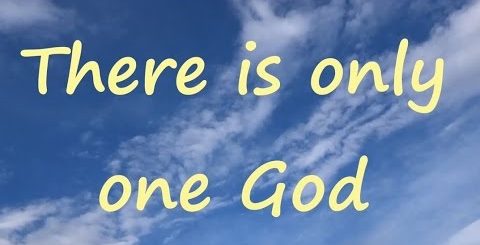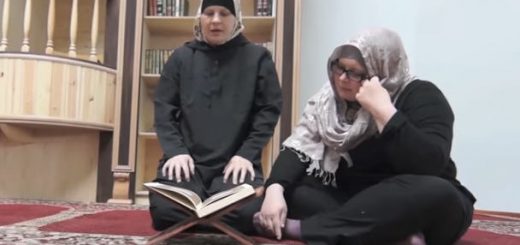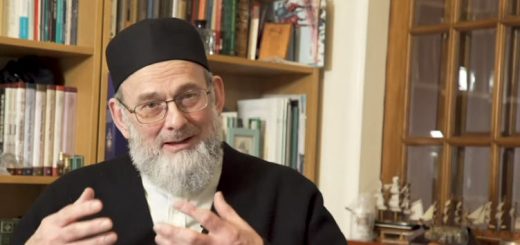Eric Schrody, Ex-Catholic
By Adisa Banjoko (interviewer)
Rap music has seen more than its share of influence from the religion of Islam. With groups such as Public Enemy rapping about their respect for the Nation of Islam, to people such as Q-Tip of a Tribe Called Quest embracing mainstream Islam, the religion seems to be a recurrent theme in the genre, both impacting lyrics and lives. One artist more recently touched by Islam is Eric Schrody, better known in music circles as Everlast.
While Everlast began his musical career as a rap artist, he has recently shown himself to have much greater depth and diversity. His current album, Whitey Ford Sings the Blues (currently ranked #49 on billboard’s charts after peaking at #9) exhibits this in its reflective and somewhat philosophical tone, showing glimpses of the influence Islam has had on his life.
What follows is an interview in which Everlast discusses his journey to Islam and the challenges he faces as a new Muslim.
AB: Tell me about the first time you learned about Islam?
E: It was probably around the late 80’s. I was hangin’ out with Divine Styler (a popular Los Angeles rap artist). He was basically at the end of his 5% period (referring to the pseudo-Islamic “Nation of Gods and Earths” sect). He was starting to come into Islam. He lived with the Bashir family. Abdullah Bashir was sort of his teacher; and mine it wound up later. As he was making the transition from 5% into Islam, I would just be around and hear things.
I’m trying to think of the first time I recognized it as Islam. I think it was when one of Divine’s friends took Shahadah (the Muslim profession of faith) and I was there. I heard him say, “I bear witness that there is no God but God, and Muhammad is the servant and messenger.” And I remember me being like, “What is this? I’m white. Can I be here?” It was outta ignorance, you know? ‘Cause here in America, Islam is considered a “Black thing.” And that’s when someone pointed out to me, “You have no idea how many white Muslims there are in the world.” I was like, “Really,” and somebody broke it down. I said, “That’s crazy. I had no clue.”
AB: Do you feel any extra pressure being a white Muslim in America?
E: I don’t think of it on the grand scale. To me, Islam is mine. Allah is the God of all the worlds, and all mankind and all the Aalameen (worlds/universe). Islam is my personal relationship with God. So nobody can put any more pressure on me than I can put on myself. But as far as the mosque where I pray, I have never felt more at home or more welcome. And it’s not just mine. The few mosques that I’ve gone to around the country, I’ve never ever been made to feel uncomfortable. Like in New York, the mosque is big and there’s so many people that nobody is lookin’ to notice you. There were Chinese, Korean, Spanish – everything, which was a good thing for me because at my mosque I’m the only white male, [although] there are some white females.
I think at first, I thought about it more than anybody else the first couple times I went to Jumma (the Friday congregational prayer). The first time I went to Jumma, I was taken by a friend of mine in New York. It was in Brooklyn in Bed-Stuy (Bedford Stuyvestant). I was nervous about the neighborhood I was in, not the mosque. But I was just so at ease once I was there. I was like, “This is great.” I didn’t feel any different than anybody else in the mosque.
AB: How did your family take your turning to Islam? Because you were raised Catholic, right?
E: Well, you know my mom is very open minded, very progressive. My mother lives with me. And I’ve been raised all my life with not a belief in God, but a knowledge that he exists. I was taught [that] if [I were to know] anything in the world, [I should] know there’s a God. And my mom, even though she was Catholic, she was the first person to point out hypocrisy in the church. My mom really hasn’t attended church in a long time. But as far as me, my mom is just happy that I have God in my life.
She sees me making prayers. And Divine is one of her favorite people in the world. She knows how much different we are than when she first knew us as kids. When me and Divine first hooked up, we were wild. We were out partyin’, fightin’, doin’ whatever we had to do. We thought, “Yeah, that’s what being a man is about. We’re gonna go out here and be thuggish.”
[But] she has seen how much it’s changed me and him; and how much peace it’s brought me since I’ve started to really accomplish something with it. I actually had a long talk with my mother the other day and we were on the topic of religion. We were actually talking about life and death, and the future and when she might go (die, pass away). That won’t be for a long time, inshallah (God willing). But I asked her to do me one favor. I said, “Mom, when you die there might be some angels who ask you a question, and I want you to answer it; and I’m not sure exactly how it goes, ‘cause I ain’t died yet. Remember that there’s only one God, and he’s never been a man.”
She said, “I know what you are trying to tell me.” [And] I said, “Jesus wasn’t God, Ma.”
Some of what I know has definitely shown up in my mother. She’s no Muslim, but she knows there’s only one God. And that makes me very happy. I know guys that have turned towards Islam and their families have turned them out (i.e. rejected them).
AB: My family tried to. I just can’t understand that. But you know what? That’s a trial. Although I’ve changed my name for like 8 years now, they still run up calling me by my birth name. Then it’s, “Oh I forgot that you’re Muslim.” Then it’s the pork jokes. It never stops.
E: It’s one of those things where people laugh at what they don’t understand. Or they fear what they can’t grasp. The thing is that nobody can pretend that they don’t understand it. Because I’ve never come across anything more simple in my life.
Like I remember that when I sat down and asked, “So, what does a Muslim believe,” and I got the list run down to me. I was like, “You don’t put up the wall between Christianity and Judaism.” They were like, “Nah, it’s all the same story.”
If when you finally get down to reading the Quran, the Bible and the Torah, which is pretty much just the Old Testament, you find that the Quran is just an affirmation of what is correct and isn’t correct within those books (the Bible and the Torah). And then you say to yourself, “How did that go down when these cats were all from different parts of the world?” But they are all confirming each other’s story.
I’m reading a book right now called Muhammad: The Life of the Prophet, by Karen Armstrong. It was written by a non-Muslim. So far, I’m only about a quarter of the way through; but it starts out telling you how they originally tried to make Muhammad look like the most evil man on the earth; that he established Islam under the sword. But then you learn that Muhammad only fought when he had to. Muhammad only fought to defend Islam. It’s a very good book about the man. It just lets you know that this cat was a man. We ain’t trying to tell you that he was anything else but a man. We’re telling you as Muslims that he was the most perfect example of a man to walk the earth so far. And from what I’ve read he is the last one to come of his kind.
When you get beyond being scared of Farrakhan and what he’s sayin’ — and here as a white person I’m speaking — when you get beyond the ignorance of believing that Islam has anything to do with just people that are blowing up things, that doesn’t have anything to do with Islam. They might do it in the name of Islam. But it has nothing to do with Islam. You can’t argue with it.
When I explain Jesus to a Christian, he can’t argue with me. And I don’t mean argue, saying, “Jesus isn’t God!” I mean, how much more sense does it make that he’s a man? If I was Christian, which to me means to be Christ-like, and God asks me, “Hey how come you weren’t more like Jesus?” I’ll say, I wasn’t more like Jesus because you made him half of a God [and] I’m only a man?” That doesn’t make any sense.
God doesn’t want things hard on us. God wants things easy as possible. God is going to make it as easy as possible. If you ask and you are sincere, God will bring it to you. He might throw some rocks on your path, to make you trip and stumble. But it’s gonna come to you.
AB: Talk to me about the first and second time you took your Shahadah (profession of faith).
E: Well the first time, it was right after I had heard a tape from Warith Deen Muhammad (son of Nation of Islam founder, Elijah Muhammad, who took most of the Nation of Islam into mainstream Islam). That just kinda broke down the whole Jesus thing. He explained that we (Muslims) do Christians a great favor by bringing Jesus down to the level of a man. Why would God create a man who is half a God and compare us to him? And it just sent off a bomb in my head. So I took Shahadah. And then the initial high wore off.
It was almost like a Christian who says that they accept Jesus. Then they say, “No matter what I do now I’m saved.” ‘Cause I was raised with that kinda mentality. Like, “OK, I accept the truth so let me just go out here and sin my butt off and I’m saved.”
I didn’t really claim to be Muslim though at that time. I picked and chose what I wanted to believe. God gave me leeway for a time. But eventually it was time to fish or cut the line. I was coming to a point where I was unsatisfied emotionally, and spiritually. I had money in the bank and a $100,000 car, women left and right — everything that you think you want. And then just sitting there being like, “Why am I unhappy?” Finally that voice that talks to you — not the whisper (of Satan) — the voice said, “Well, basically you’re unhappy because you’re living foul and you’re not trying to do anything about it.”
My stubbornness at that time wouldn’t allow me to talk about it at that time. You get in that state of mind where you’re like, “I can figure this out all by myself.”
I finally got humble enough to talk to Divine and Abdullah about it. They asked me, “How do you feel? What do you think it is?” So finally I’m sittin’ there taking Shahadah again. From that point on I’ve made a commitment where I’m going to try my best. I’m gonna do my best to make my prayers, let’s start there. Let’s not beat ourselves up because we went out last night and had a drink. Let’s make our prayers and pray for the strength to stop doing one thing at a time. That’s what I’m still dealing with.
You know, once you get over the big things, it becomes very subtle. It can be as subtle as looking at a man, and not even speaking bad about him, but back-biting him in your mind. The easy ones to beat — well I shouldn’t say easy — the big ones are easy to notice. It’s the subtle psychological stuff that helps you get into who really you are. You gotta be able to face the truth of who you are. If you are not able to face that truth of who you are, you’re gonna crumble, man.
People question me and go, “You’re Muslim?” And I’m like, “Yeah I’m Muslim, but I’m also a professional sinner.” I’m tryin’ to get over it, tryin’ to retire. I won’t front and say I’m better than you. I just believe that I’ve been shown the truth and hopefully that will save me.”
Adisa Banjoko is a freelance writer in the San Francisco Bay Area.
Number of View :1858













